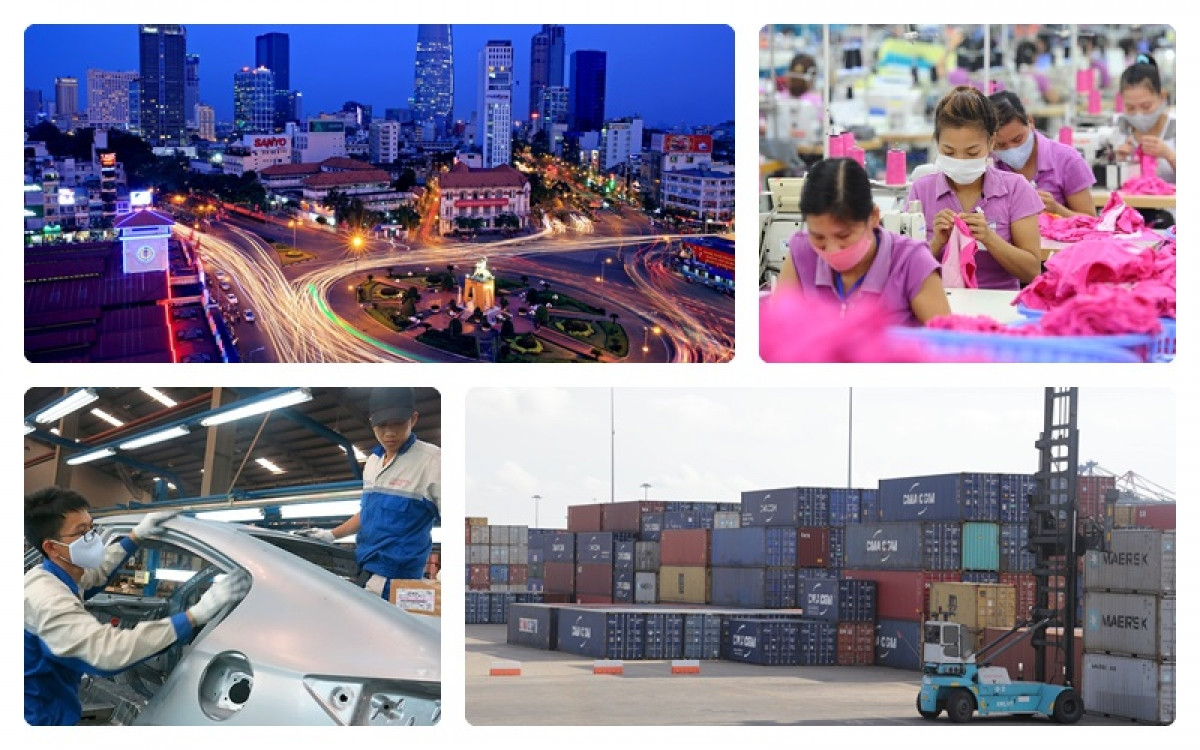
A bright spot in the overall picture

According to economic expert Dinh Trong Thinh, the national economy has gradually gathered steam since the beginning of the year, despite enduring difficulties caused by the COVID-19 pandemic and the ongoing conflict in Ukraine.
The State Bank of Vietnam has moved to apply an appropriate and flexible monetary policy which seeks to keep a tight grip on inflation, while central banks of many countries have continuously raised interest rates in an attempt to rein in galloping inflation.
Thinh noted that credit growth is increasing considerably, although the rate should be kept at around 14% to 15% by the end of the year in order to meet growth demand.
As the Russia-Ukraine conflict continues to fuel the global food crisis, food prices in Vietnam have largely been kept in check, and a range of farm products have even been exported, thereby stimulating future growth.
Most notably, local agriculture has enjoyed strong developing, proving to be a fulcrum of the national economy during difficult times.
Furthermore, the Government has introduced policies which seek to strictly manage the real estate and stock markets and avoid the ‘bubble’ situation as seen in previous years.
“If real estate does not grow, it will clog related services, creating inflationary pressure, and the fact that investors carry bad debts can drag down the financial and monetary system,” Thinh told baochinhhu.vn. “The Government is therefore taking reasonable steps to ensure inflation control along with supportive fiscal and monetary policies should not affect economic recovery”.
Seizing upon opportunities a must
Many of the country’s major trading partners are forecast to slow down ahead in the third and fourth quarters of this year, a factor which will lower global demand for goods and accidentally impact exports. However, economic expert Nguyen Thuong Lang stated that taking advantage of preferences from free trade agreements would help Vietnam mitigate the impact and sharpen its competitive edge.
According to Lang, the Government and local enterprises should seek to increase export promotions in all markets, organise trade fairs and business forums to find new partners, and fully exploit the role of e-commerce platforms.
Moreover, the Government and businesses should move to strengthen research and development, penetrate deeply into partner markets that are members of free trade agreements, support firms in finding partners, and promptly meet requirements on technical barriers, hygiene, rules of product origin, and planting area code.
Lang added that as global supply chains are being impacted by the pandemic and the Ukraine conflict, this creates both challenges and opportunities for the country.
The Government should therefore encourage local enterprises to invest in production, and observe production technology and advanced management models to improve competitiveness.
Amid the risk of a global food crisis, the economic expert suggested that the country have a reasonable amount of stockpiles, along with improving the overall quality, distribution, and storage system.
In addition he said Vietnam should expand into fresh markets besides traditional partners. Signing trade agreements with Middle Eastern countries is a good suggestion, because no Vietnamese businesses have yet to exploit this market for food, beverages, cosmetics, and services.
Finally, Lang concluded that the Government should stabilise the local currency (VND) to create favourable conditions for businesses to increase exports, expand markets, and gain higher profits.
“If businesses have satisfactory investment strategies in terms of capital, technology and market, Vietnam will have thousands of more products that meet the export standards of partners in the near future,” assessed Lang.
Source: VOV